Page content
Politics in Colonial Virginia
Pre-Independence
The first European settlers were loyal subjects of the English King George II. They established a colony in Virginia for the purpose of creating trade goods and sending them back to England. In time, the colonists came to resent their obligations to the crown, and began to move toward independence.
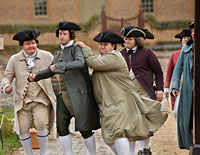
Historical Background: From the Stamp Act Crisis to Revolution
Tension builds over taxation without representation.

Virginia Time Line, 1760-1776
Trace the path of rebellion as mounting grievances tip the balance toward war.
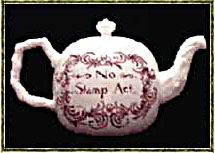
Stamp Act
A tax on paper goods rankles the citizenry.
Summary of the 1765 Stamp Act
Virginia Stamp Act Resolutions - May 30, 1765
William Pitt's Speech Against the Stamp Act - January 14, 1766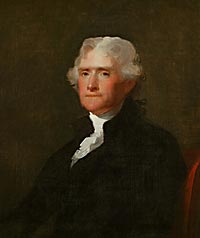
Thomas Jefferson's Summary View of the Rights of British America
Jefferson demands the rights due to all English subjects.
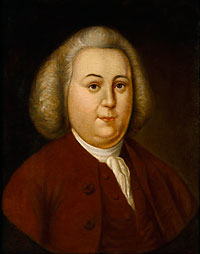
Declaration and Resolves of the First Continental Congress
Congress adopts the articles of a non-importation association in defiance of British taxation.
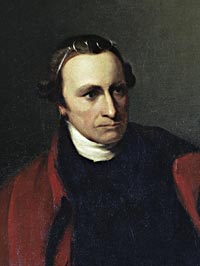
Patrick Henry's Speech: "Give Me Liberty Or Give Me Death"
Patrick Henry utters the words that one day every American will know.
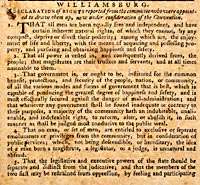
Virginia Declaration of Rights
Virginia's declaration is the bellwether of a national one.
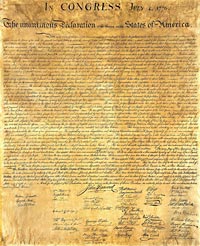
Declaration of Independence
The colonies sever ties with England.
Post-Independence
Now what: the United States had won its independence, but was adrift without a central government or a constitution. A new government was built based on egalitarian principles, in contrast to England's tradition of hereditary power.
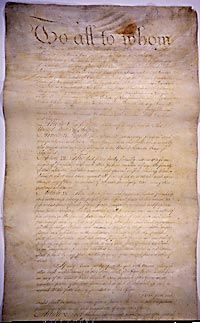
United States Articles of Confederation
These articles governed the country in the gap after the war and before the Constitution.

United States Constitution
A new government is born, wise in its provisions for future changes.
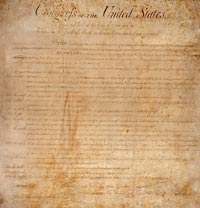
Amendments to the United States Constitution
American law's evolution begins with the Bill of Rights.
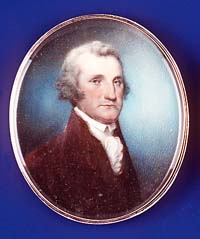
George Washington’s First Inaugural Address
A reluctant but dutiful Washington accepts the presidency.
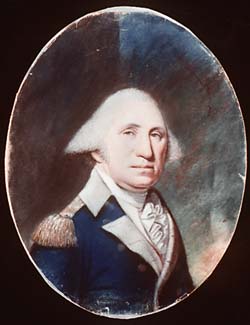
George Washington’s Second Inaugural Address
Washington begins his second term concisely.

George Washington’s Farewell Address
The president’s Farewell Address was hand written and then printed in Philadelphia on Sept. 19, 1796.

Thomas Jefferson’s First Inaugural Address
Jefferson bids Americans to "unite with one heart and one mind."
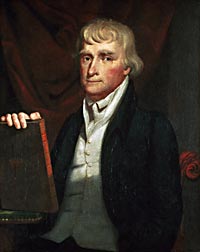
Thomas Jefferson’s Second Inaugural Address
This lengthy address touches on every aspect of the office.
Biographical Material:
Meet some of the minds who conceived the model for a government whose power lies in its subjects. Pressed into greatness at the dawn of war, the ideas of these founders are revered as core American principles.

George Washington
Considered one of the founding fathers, a general in the Virginia militia, and first president of the United States of America.

Thomas Jefferson
Scholar, governor of Virginia, writer of the Declaration of Independence, and considered one of the founding fathers.
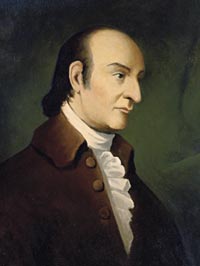
George Wythe
First Virginia signer of the Declaration of Independence, framer of the federal Constitution, and instrumental in the design of the seal of Virginia.
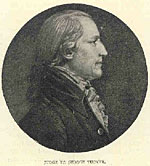
St. George Tucker
Lawyer, trader, inventor, scholar, professor, judge, essayist, poet, gardener, and stargazer.

Peyton Randolph
Revolutionary leader, Attorney General of Virginia Colony, and chairman of the first and second Continental Congress.

Patrick Henry
Lawyer, patriot, orator, and participant in virtually every aspect of the founding of America.
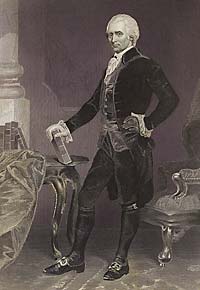
Richard Henry Lee
Planter who was a defender of colonial rights and was aligned with Patrick Henry as a strong opponent of the Stamp Act.
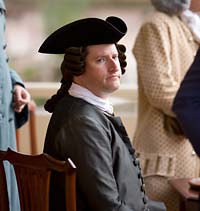
George Mercer
Surveyor, military officer, and for a brief time, stamp collector for the colonies of Maryland and Virginia.
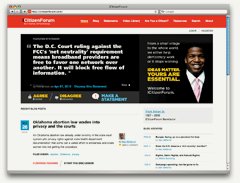
iCitizenForum
Created by Colonial Williamsburg in 2007, the iCitizenForum blog promotes understanding of the balance between rights and responsibilities of citizens. We believe a citizenship dialogue is essential.
Join the discussion at www.icitizenforum.com
